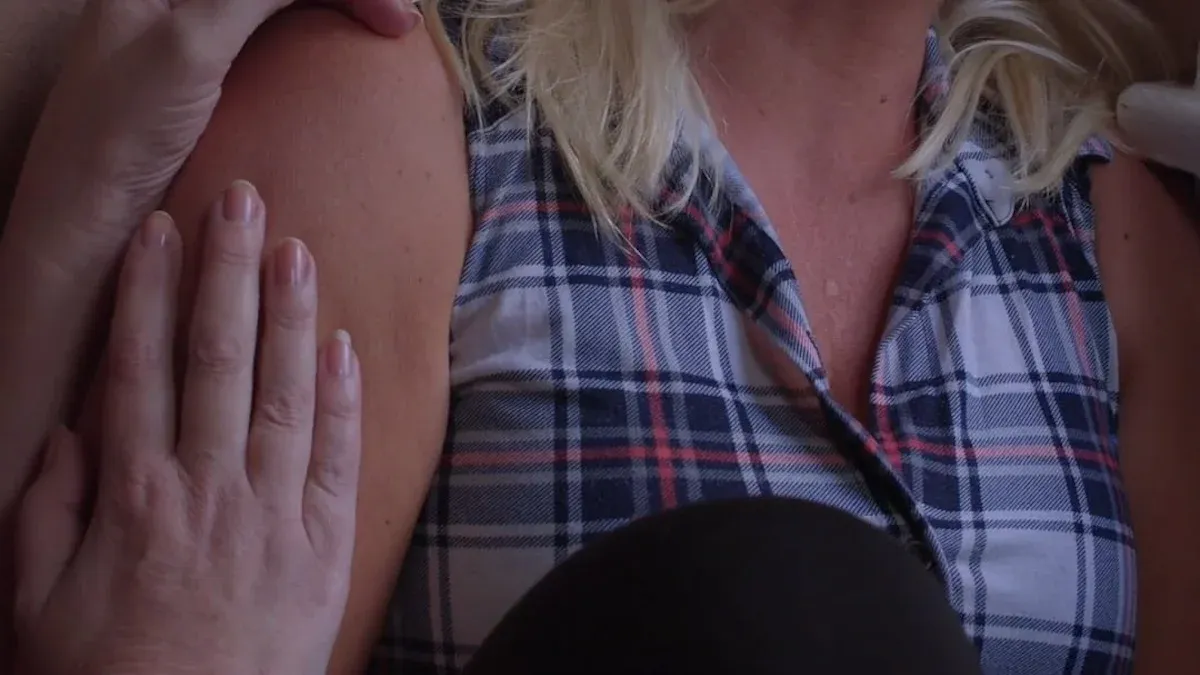Why Narcissists Hoover After the Final Discard

Hoovering After Discard Narcissistic Abuse Explained Simply
Yes, a narcissist can try to hoover after the last discard. Not everyone will go through this. Your feelings are real. This is true if you have had hoovering after discard narcissistic abuse or not. Some narcissists act because they fear being left alone. Some want to control others. Others want something for themselves, like feeling important. You might see that reasons and actions can change. It depends on the narcissist’s personality.
Key Takeaways
Hoovering happens when a narcissist wants you back after a breakup. Knowing this can help you stay safe.
You need to set clear boundaries. Tell them what you will not allow. This can make hoovering less likely.
No contact is a strong way to protect yourself. Block the narcissist everywhere. This helps you take back control and stops their tricks.
Narcissists often use emotional manipulation. Watch out for guilt trips and other tricks. These can make you feel confused.
Taking care of yourself is very important. Do things that make you feel good and confident. This helps you stay strong against hoovering.
Not Sure If You Are Been Gaslighted?
Sometimes it's hard to recognize gaslighting and emotional manipulation. Our Gaslighting Check app helps you identify patterns and provides personalized guidance based on your specific situation.
Try Gaslighting Check App NowHoovering After Discard Narcissistic Abuse
Why Narcissists Hoover
You might ask what hoovering after discard narcissistic abuse is. Hoovering means a narcissist tries to pull you back after ending things. The final discard is when the narcissist stops talking to you for good. This often happens after many breakups and makeups.
Narcissists hoover for different reasons. They want to keep control over you. They think you still have feelings they can use. Sometimes, they talk about other people to make you jealous. If they see you moving on, they may try harder to bother you.
Tip: If your ex contacts you suddenly after being quiet, it could be hoovering after discard narcissistic abuse.
Here are some reasons experts say narcissists hoover after discard narcissistic abuse:
They want to keep control over you.
They want attention and praise from you.
They may mention other partners to make you jealous.
If you look happy or have a new relationship, they may try to ruin it.
Narcissistic hoovering happens because narcissists cannot make healthy bonds. They are selfish and like to control others. They see themselves and others in a strange way. Sometimes, their reasons for hoovering are hard to understand.
Control and Supply
Control and supply are the main reasons for hoovering after discard narcissistic abuse. Narcissists want to feel strong. They want to know they can still change your feelings. If you set strong rules, you take away their control. This can stop hoovering before it starts.
Not all narcissists hoover after the last discard. Some types, like covert or malignant narcissists, act in other ways. If a narcissist finds someone new to give them attention, they may leave you alone. Sometimes, if they know you are sad, they feel happy and do not come back. Some narcissists stay away because they fear being found out. If they think you have proof of what they did, they may not return to protect their image.
Things that affect if a narcissist will come back include:
Need for control: They may want to keep contact open.
Setting boundaries: If you make clear rules, they may not return.
New supply: If their new relationship ends, they might try to come back.
Worry about what others think: They care about their reputation, which can change what they do.
Narcissistic hoovering after discard narcissistic abuse can look different for each person. Some narcissists never come back because they have moved on or are scared. Others return many times, hoping to get control or attention again.
Note: You can protect yourself. Setting rules and knowing these patterns helps you stay safe from hoovering after discard narcissistic abuse.
Narcissistic Hoovering Tactics
Emotional Manipulation
Hoovering often begins with emotional manipulation. A narcissist uses tricks to get you back. They might call or text you suddenly. Sometimes, they say sorry for past actions but blame you instead. Love bombing happens a lot. You might get compliments, gifts, or deep talks. These things can make you doubt leaving. Gaslighting can also happen. The narcissist tries to make you question your memories and feelings. They may pretend there is an emergency so you worry and reach out.
Here are some common hoovering behaviors:
They promise to change and may say they are getting help.
They give big gifts or make dramatic apologies.
They try to make you feel bad for leaving them.
They make big promises about the future that never come true.
They suddenly need help or pretend something is wrong.
They bump into you on purpose but act like it was by accident.
They use other people to put pressure on you.
They talk about the good times to make you miss the past.
Covert narcissists use sneaky and quiet tricks. They often say they have changed, and this can last a long time. Overt narcissists like to do big and loud things. You need to notice these differences to keep yourself safe from hoovering.
Guilt Induction
Guilt induction is another strong trick. The narcissist might say you hurt them by leaving. They act like they are the victim so you feel bad. You might hear that you ruined their life or made them sad. This trick makes you wonder if you made the right choice.
Support groups say guilt induction causes emotional pain. You might feel shame or blame yourself. This can change how you see yourself and make it hard to trust your feelings. Knowing about these tricks helps you stay strong and not fall for hoovering again.
Tip: If you feel guilty or mixed up after talking to them, remember the narcissist uses these tricks to get control again.
Signs of Hoovering
Unexpected Contact
You might see hoovering when a narcissist contacts you after being quiet for a long time. This contact can seem strange or happen out of nowhere. You could get a text, a call, or a friend request online. Sometimes, the narcissist shows up where you are and acts like it is just chance. These things can make you feel confused and unsure about your limits.
Mental health experts say hoovering is a strong way to get back into your life. Covert narcissists use this to return after leaving. Their actions can hurt how you feel and even your body. They might use you to get what they want, so it is hard to notice. You should learn these signs and say no to hoovering. Keeping clear rules helps keep you safe.
Common signs of unexpected contact include:
Getting a sudden text or call from the narcissist
Running into them in public without planning it
Hearing from mutual friends or family members
Getting asked for help or support for no reason
Tip: If you feel weird after a surprise contact, listen to your gut. Hoovering often begins with small actions.
Attempts to Trigger Emotions
Hoovering is not just about reaching out. The narcissist tries to make you feel strong emotions to pull you back. You might feel guilty, miss the past, or get confused. These feelings can make you question your choices and memories.
They may tell you stories about how much you mattered to them. Sometimes, they talk about good memories or say they are having a hard time without you. These things are meant to make you feel like you must help them be happy.
Psychological effects you may notice:
Missing the past can make you forget the bad times.
Confusion happens when their words sound nice, but you feel unsure.
Note: Feeling confused is normal during hoovering. If you feel mixed up, remember these tricks are used to control your feelings.
Protecting Yourself from a Narcissist

Setting Boundaries
You can protect yourself from hoovering by setting clear boundaries. Boundaries tell the narcissist what you will and will not accept. When you say “no” and stick to it, you show that you respect yourself. This makes it harder for hoovering to work. If you keep your rules strong, the narcissist will see that you cannot be pushed around.
Tell the narcissist what behaviors are not okay.
Stay calm and do not let them see you upset.
Use “I” statements to share your feelings, like “I need space.”
Do not argue or try to prove your point.
Practice self-care, such as spending time with friends or doing things you enjoy.
Setting boundaries lowers the chance of hoovering. When you keep your limits clear, you make it harder for the narcissist to pull you back in. They may test your rules, but you can stay strong.
Tip: Boundaries are not just words. You must follow through with actions every time.
No Contact
No contact is one of the best ways to stop hoovering. This means you block the narcissist on your phone, email, and social media. If you see them in person, you ignore them. If you must talk, use the “gray rock” method. This means you act boring and do not show emotion.
Block the narcissist everywhere you can.
Ignore any messages or calls.
Use the gray rock method if you must speak.
Call the police if they harass you.
When you cut off contact, you stop the narcissist from getting what they want. Hoovering often gets stronger when you first go no contact. You may feel guilty or want to answer, but this is normal. Support from friends, family, or a therapist can help you stay strong. Support groups also give you a safe place to talk and learn new ways to cope.
Taking care of yourself is important. Self-care helps you heal from hoovering and builds your confidence. Try activities like exercise, mindfulness, or spending time with people who make you feel good. These steps help you feel safe and ready to move forward.
You might see hoovering after the last discard, but not all narcissists come back. Each narcissist has different reasons and ways to hoover. Taking care of yourself and making rules helps you heal and stay safe:
Self-care and rules help you feel strong and build self-worth.
Rules protect your feelings and show what is okay in relationships.
Support Tool | Benefit |
|---|---|
Helps you trust your thoughts and feelings | |
Professional Help | Gives you special support to get better |
Listen to your gut if you notice hoovering. Getting help makes it easier to say no to hoovering and move on.
FAQ
What is the main goal of hoovering?
Narcissists hoover to pull you back into their lives. They want control or attention. You may feel confused or guilty. Remember, their goal is not to help you heal.
How long can hoovering last?
Hoovering can last for weeks, months, or even years. Some narcissists stop quickly. Others return many times. You may notice patterns if you watch their behavior.
Can hoovering happen through friends or family?
Yes! Narcissists often use mutual friends or family to send messages. You might hear about them or get asked to talk. Stay alert and keep your boundaries strong.
What should you do if you feel tempted to respond?
Pause before you reply.
Remind yourself why you left.
Talk to someone you trust.
Block or ignore the narcissist if you can.
Your safety and peace matter most.